





Paranoia
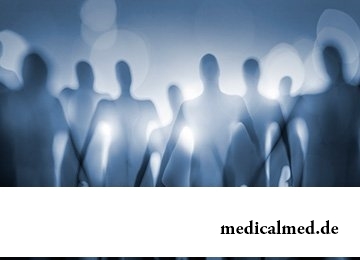 The chronic disorder of thinking which is appearing at damages of a brain and various diseases of mentality, characterized by emergence of logically built system of behavior which is based on a mania of prosecution, groundless jealousy and suspiciousness is called paranoia.
The chronic disorder of thinking which is appearing at damages of a brain and various diseases of mentality, characterized by emergence of logically built system of behavior which is based on a mania of prosecution, groundless jealousy and suspiciousness is called paranoia.
The term was introduced into circulation in 1863 by Karl Ludwig Kalbaum, up to this point paranoia was considered as an independent mental disorder.
Such system of behavior is usually invariable, it could be considered absolutely adequate if initially pathological ideas were based on reality and were correct in fact.
The easiest form of a disease call paranoiac a syndrome. At the patient are observed primary systematized prosecution mania, groundless jealousy and hypochiondrial nonsense. Except these manifestations the paranoiac syndrome in certain cases is followed erotic, litigious, a high origin or monothematic nonsense of a reformatorstvo.
During paranoia the maintenance of pathological situations often is based or includes many elements of reality which quite plausibly in consciousness of the patient mix up with his unhealthy imagination.
Treatment of paranoia in most cases is impossible as patients refuse to resort to the help of specialists, including themselves absolutely normal at all, and the ideas corresponding to reality.
Paranoia reasons
It is unambiguous to tell what provokes emergence of paranoia is impossible, however there are several assumptions. According to many psychiatrists, adverse vital circumstances, and also the wrong reaction of the person to the changes happening in his life can provoke a state.
Siegmund Freud considered that the delay or fixing happening at a certain stage of sexual development of the child aged from 4 up to 11 years when boys play with boys, and girls with girls is an actual reason of paranoia. If during this period there is a fixing, then it by all means will lead to development of men's aggression or alcoholism in the future, as will become the reason of development of paranoia.
Other psychologists consider that paranoia is provoked by the limited center of congestive excitement which is present at a cerebral cortex of the patient. Because of it there is an obstacle of normal mobility of cortical processes that involves emergence of the imaginations and improbable statements kept in consciousness of the patient a long span.
Disturbance of the exchange processes in a brain connected with protein is one more alleged cause of paranoia.
From the last assumptions made by the American scientists, overconsumption of kofeinosoderzhashchy drinks can act as the reason of paranoia. Such interrelation is explained by ability of caffeine to stimulate chronic sleeplessness, diseases of cardiovascular system and various look psychoses which under certain circumstances can develop into paranoia.
Many cases when the syndrome developed at people of old age at degenerative processes in a brain to which number belong are registered:
- Alzheimer's disease;
- Atherosclerotic defeat of vessels of a brain;
- Parkinson's disease;
- Huntington disease.
Refer reception of some types of medicines, alcohol, drugs and amphetamines to probable causes of development of a paranoiac syndrome.
Symptoms of paranoia
Classical symptoms of paranoia are the following manifestations:
- Unhealthy suspiciousness;
- Tendency of the patient to see the intrigues of enemies and the theory of plots directed against his personality in accidental incidents;
- From the most early age the paranoid is distinguished from peers with high self-esteem, an egocentrism, a pravdoiskatelstvo and tendency to issue the imaginations for real events.
In most cases symptoms of paranoia is the sudden conflictness with surrounding people based on opinion of the patient that people around envy it or wish to belittle his advantages. Over time the paranoid becomes more and more aggressive, sensitive, vindictive, suspicious and mistrustful, he is not capable to perceive objective criticism, to forgive and forget offenses. Some time progressing of a disease can stop at this stage of development, however any injuring event in life of the patient aggravates symptoms of paranoia.
Paranoia: treatment
In most cases progressing of paranoia is promoted by belief of close people of the patient in his crazy ideas as at first sight they are quite logical. It delays the paranoid's visit to the psychiatrist and diagnosis of a disease, as a result treatment of paranoia is postponed indefinitely and drags on.
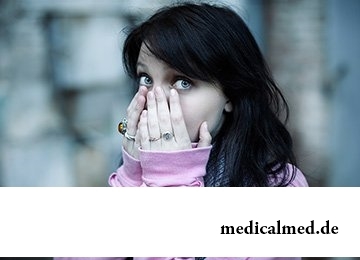 One more obstacle to treatment of a disease is the full refusal of the patient to resort to the help of specialists, in his opinion it is absolutely healthy, and his ideas have no "crazy" character.
One more obstacle to treatment of a disease is the full refusal of the patient to resort to the help of specialists, in his opinion it is absolutely healthy, and his ideas have no "crazy" character.
In cases when the patient nevertheless it is possible to persuade to ask for the help, in the conditions of a hospital to him appoint the neuroleptics rendering preferential anti-crazy effect apply psychotherapy of various directions much less often as an element of combined effect.
Treatment of paranoia is always complicated as over time suspicions of the patient begin to extend also to the attending physician, and paranoids perceive psychotherapy as a way to control their consciousness.
Paranoia call the chronic disorder of thinking arising against the background of diseases of mentality, degenerative processes or damages of a brain. Characteristic symptoms of a disease are the prosecution mania, suspiciousness, groundless jealousy and sensitivity of the patient, and also his inability to perceive criticism and to forgive offenses.
The stomach of the person not bad copes with foreign objects and without medical intervention. It is known that the gastric juice is capable to dissolve even coins.

The words "disease" and "patient" not without reason come from one root – "pain". As a rule, symptoms of illnesses thoroughly spoil the patient...
Section: Articles about health
Bees – really unique beings. Practically all products of their life activity are used by the person. Since the most ancient times medicinal properties of honey and other substances received in the course of beekeeping are known. The fact that all these пр is especially significant...
Section: Articles about health
The modern person not always manages to find housing in the environmentally friendly region and such work which would not do harm to health. With food stuffs at first sight the situation is much better: shops are overflowed with goods which are positioned by producers as very useful and absolutely safe. Many Russians are absolutely sure that the choice of products with marking "bio", "эко" or "organik" guarantees them and members of their families an optimal variant of food. To a sozhala...
Section: Articles about health
Almost each of us during life faced dissatisfaction with own body. At such moments, as a rule, we beginning...
Section: Articles about health
About 10-15 years ago existence of the computer in the apartment of the Russian was considered as a rarity and office rooms were only at the first stage of equipment by these useful devices. Today practically in each house there is a computer (and often not one), and to constants...
Section: Articles about health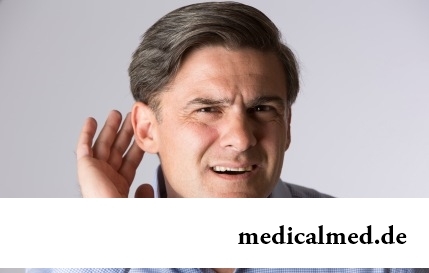
Partial and the more so full loss of hearing significantly reduces quality of life. Difficulties with communication lead to loneliness and isolation. The person who badly hears experiences difficulties with social and professional implementation, quite often has problems in private life....
Section: Articles about health
Season of activity of viral infections in the heat. Everyone can get sick, but probability of this unpleasant event it is possible and it is necessary miny...
Section: Articles about health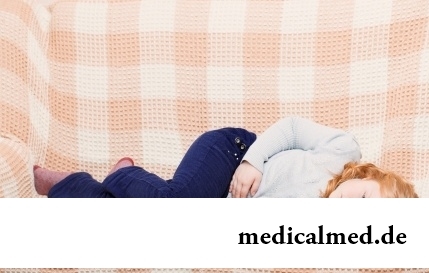
Epilepsy is one of widespread neurologic diseases. Parents, whose children suffer from this illness, should face rumors and delusions, many of which remained since the Middle Ages....
Section: Articles about health
During foot walks blood moves on vessels more actively and one and all bodies are supplied with a large amount of oxygen. It affects the state of health of the person very positively....
Section: Slideshow
The nature does not stand stagnation and monotony. It is known that tissues of a human body atrophy if do not receive necessary loadings...
Section: Articles about health
The next flu epidemic leads to the next panic, from year to year we give in on these manipulations: professionally alarming voice of the announcer in news, reports with calculation of the died patients, an interview with people in white dressing gowns and advertizing of anti-influenza means ра...
Section: Articles about health
Sugar - the digestible refined product which is not of special value for an organism of the modern person. The use of sugar in food is based rather on the psychological dependence caused by desire to indulge itself with something tasty, and further and the biological, caused need of an organism for glucose as a result of big emissions of insulin in blood. Such circulation of insulin and glucose with continuous increase in portions of sugar is rather offensive and can become the reason for a narusha...
Section: Articles about health
All know that self-treatment is dangerous. However absolutely it is almost impossible to do without it. Rate of modern life not on...
Section: Articles about health
Separate food - the system of meal based on digestion physiology which is carried to improvement methods. According to nutritionists, the separate use of the carbohydrate and proteinaceous products demanding different conditions of assimilation helps to get rid from Bol...
Section: Articles about health
The cosmetics intended for improvement of a condition of skin, nails and hair are used by each woman. Expenses on regular acquisition of the fashionable widely advertized products of well-known companies for many become very notable and significantly burden the family budget. Meanwhile, there is a number of inexpensive pharmaceutical drugs which can quite be applied in the cosmetic purposes. At the same time the effect of their use is often more noticeable, than result of use of the most expensive...
Section: Articles about health
The immunity role in growth of the child is invaluable. The proteins-immunoglobulins produced by immune system preserve the child against diseases...
Section: Articles about health
Coffee – favourite drink of many. For the last decades it more than once already declared very harmful, extremely useful and even necessary for normal life activity. In spite of the fact that this product became for us usual for a long time, exists much...
Section: Articles about health
Physical activity is necessary for normal functioning of a human body. At a lack of the movement joints cease to function, muscles atrophy, cardiovascular activity is broken and the metabolism worsens. The modern city rhythm of life does not provide the person with an adequate exercise stress, additional - sport is necessary. Tedious tasks the huge number of the people having those or ин exists sport not all to liking, but also...
Section: Articles about health
Stroke (acute disorder of cerebral circulation) – one of the most widespread neurologic diseases. Annually in the world...
Section: Articles about health
Antibiotics - - it is possible to call the chemical compounds suppressing growth of bacteria the break in the field of medicine which allowed to save mankind from many diseases incurable earlier: tuberculosis, plague, syphilis and many others. A contribution of drugs to rescue of people from...
Section: Articles about health
Cold, puffiness of a nose, itch, the watering eyes - characteristic symptoms of the allergic rhinitis resulting from hit of allergens (pollen, house dust, hair of animals, etc.) on a mucous membrane of a nose. Unpleasant feelings often give trouble, serving as the reason of a headache, an acrimony, sleep disorders, and in certain cases and the states close to a depression. How to get rid of undesirable satellites of a disease if near at hand there are no antiallergic...
Section: Articles about health
Milk and products of its processing by right occupy one of the main places in a diet of the modern person. They contain necessary...
Section: Articles about health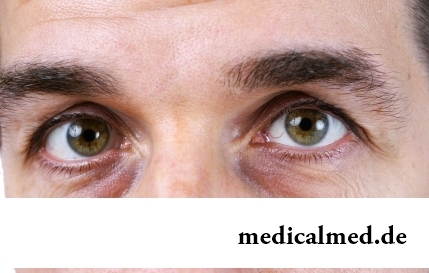
Zone hypostases under eyes - very widespread problem giving to people is a lot of inconvenience. Hypodermic fabric in these parts has very loose structure and almost does not contain collagenic fibers. Besides, the skin covering подглазья constantly is exposed...
Section: Articles about health
You heard that laughter prolongs life? Researchers did not manage to establish longevity direct link with sincere fun yet, but several facts confirming beneficial influence of risibility on the state of health are clinically proved....
Section: Articles about health
Popular joke that there are no healthy people, and is nedoobsledovanny, most of us considers an honest truth, and put that...
Section: Articles about health
Musicotherapy – a treatment method which caused and causes a set of a controversy concerning its efficiency. However the facts are relentless: during the numerous researches curative impact of music on an organism was scientifically confirmed. Since then in a number of the countries a method...
Section: Articles about health
When overcomes feeling of hunger, and an opportunity to have dinner fully is absent, having a snack − the meals, small on volume, stabilizing sugar level in blood comes to the rescue. The relation of nutritionists to having a snack more often negative, but only because as snack people choose the most caloric products with the increased amount of "bystry" carbohydrates: cookies, rolls, chips, candies. Nevertheless, the advantage of having a snack is obvious to weight loss: the person avoids strong feeling of hunger...
Section: Articles about health
